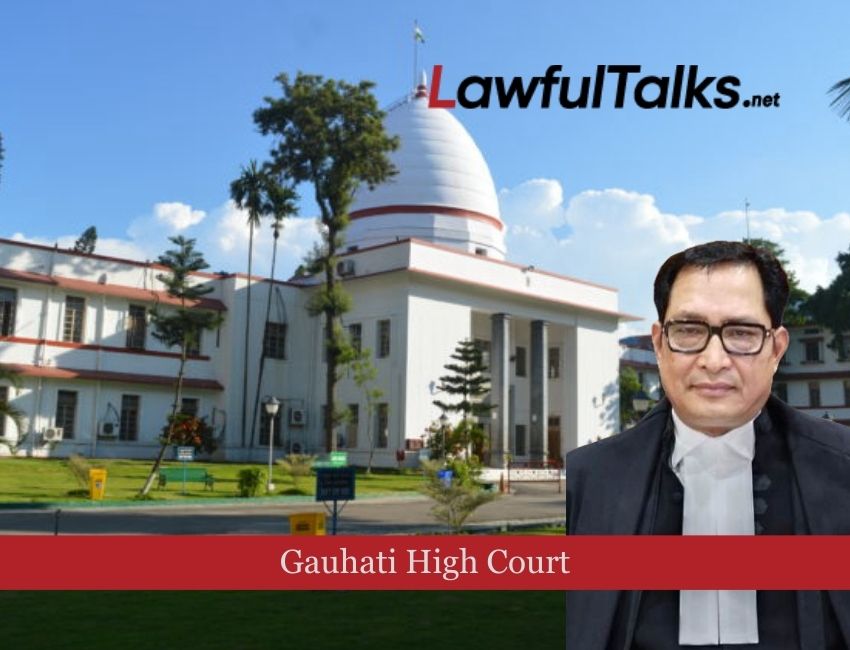Allahabad HC Sets Aside Afzal Ansari's Conviction, Allows Him to Continue as MP

The Gauhati High Court, presided over by Justice Kardak Ete, dealt with a petition regarding the acceptance of the petitioner’s resignation from the CRPF. The petitioner sought the Court’s intervention after his resignation was accepted without the constitution of a medical board to examine his health condition, as requested in his resignation letter. The Court ultimately ruled that the resignation was unambiguous and voluntary and therefore upheld its acceptance, dismissing the petition for lack of merit.

The petitioner, Rangan Kr. Nath, was inducted as a Constable (GD) in the CRPF on August 6, 2000. In 2008, while posted in Guwahati, the petitioner was diagnosed with ‘Low Backache’ and subsequently classified under the P3(P) medical category, a permanent disability designation. Due to his medical condition and associated frustration, the petitioner submitted a resignation letter dated July 27, 2012, requesting the authorities to either constitute a medical board for a thorough examination or accept his resignation if no such board could be convened.
The petitioner contended that the CRPF authorities accepted his resignation effective from August 4, 2012, without constituting a medical board, despite his request. He argued that he had completed the required qualifying service for medical retirement benefits and should not have been discharged solely based on his resignation.
The petitioner’s counsel, Mr. P.J. Saikia, argued that the resignation letter was conditional, as it requested the constitution of a medical board for assessing his health condition. The acceptance of the resignation without constituting the medical board, the counsel argued, was procedurally flawed. Had the board been constituted, the petitioner could have been discharged on medical grounds, entitling him to an invalid pension under the rules.
Additionally, the petitioner relied on the judgement in William R. Shimary v. State of Manipur (1996 3 GLT 216), where it was held that a conditional resignation cannot be accepted without informing the employee that the condition cannot be fulfilled. The petitioner’s counsel contended that the resignation was improperly accepted without addressing this condition.
The respondents, represented by Mr. G. Pegu, countered that a medical board had already been constituted for the petitioner’s examination in May 2012 as part of a Departmental Rehabilitation Board review for force personnel. However, before any final action was taken, the petitioner submitted his resignation letter on July 27, 2012. The respondents further argued that the resignation was voluntary and not conditional, pointing out that the petitioner had specifically mentioned his inability to continue due to family and health reasons.
Moreover, the respondents argued that since the petitioner had only served 12 years and 2 months in the CRPF, he was not eligible for pension under Rule 26(1) of the Central Civil Pension Rules, 1972, which mandates a minimum of 20 years of service for pension entitlement. They relied on the judgment of the Hon’ble Supreme Court in the case of BSES Yamuna Power Ltd. v. Sh.Ghanshyam Chand Sharma & Anr., 2020 3 SCC 346 to project that where an employee has resigned from service, there arises no question of whether he has infact voluntarily retired or resigned. Decision to resign is materially distinct from a decision to seek voluntary retirement. Decision to resign results in legal consequences that flow from a resignation under applicable provision.
The petitioner, diagnosed with a condition classified under P3(P), submitted a resignation letter on July 27, 2012. The letter, as per the petitioner, requested a medical board examination, stating that if this could not be arranged, his resignation should be accepted. However, the respondents relied on a handwritten version of the same date, which indicated that the petitioner resigned due to his inability to support his family and his medical classification, without mentioning a conditional request for a medical board.
The bench scrutinised both versions of the resignation letters presented by the petitioner and the respondents. It was observed that while the petitioner’s version of the letter suggested a request for a medical board, the handwritten resignation relied on by the respondents clearly stated that the resignation was due to personal reasons, specifically the petitioner’s inability to support his family due to his medical condition.
The Court noted that there was a distinct difference in the two resignation letters, suggesting that the petitioner might have retyped his letter by way of improvement. Regardless, the Court emphasised that resignation letters must be clear, unambiguous, and unequivocal. If a resignation is conditional, it cannot be accepted without informing the employee that the condition cannot be met.
The Court found that the petitioner’s resignation, although mentioning a medical board, was not conditional. The phrase “otherwise my resignation may be accepted” indicated that the petitioner had offered his resignation voluntarily if the medical board was not constituted. The Court concluded that there was no ambiguity or condition attached to the resignation that would render its acceptance invalid.
The Court held that the petitioner’s resignation, being clear and unequivocal, was lawfully accepted by the CRPF authorities. The fact that the petitioner had only completed 12 years of service meant that he was not eligible for pension under Rule 26(1) of the Central Civil Pension Rules, 1972. Since the petitioner did not raise the issue of pension forfeiture in his petition, the Court did not delve into its applicability.
Thus, the petition was dismissed, with the Court concluding that no case had been made for interference with the impugned order of resignation acceptance and the petitioner’s discharge from service.
Case Details: Rangan Kr. Nath v. Union of India, WP(C) 196 of 2016.
Advocates for Petitioners: Mr. R. Gogoi, Ms. B. Gogoi, Mr. Parag J. Saikia
Advocates for Respondents: Central Government Counsel, Mr. G. Pegu
(For more updates, tap to join our Whatsapp Channel and our LinkedIn Page)
Asmi Desai
Advocate, High Court
Latest Posts
Categories
- International News 19 Posts
- Supreme Court 352 Posts
- High Courts 366 Posts




























































































































































































































































































































































































































































































































































































































































































































































